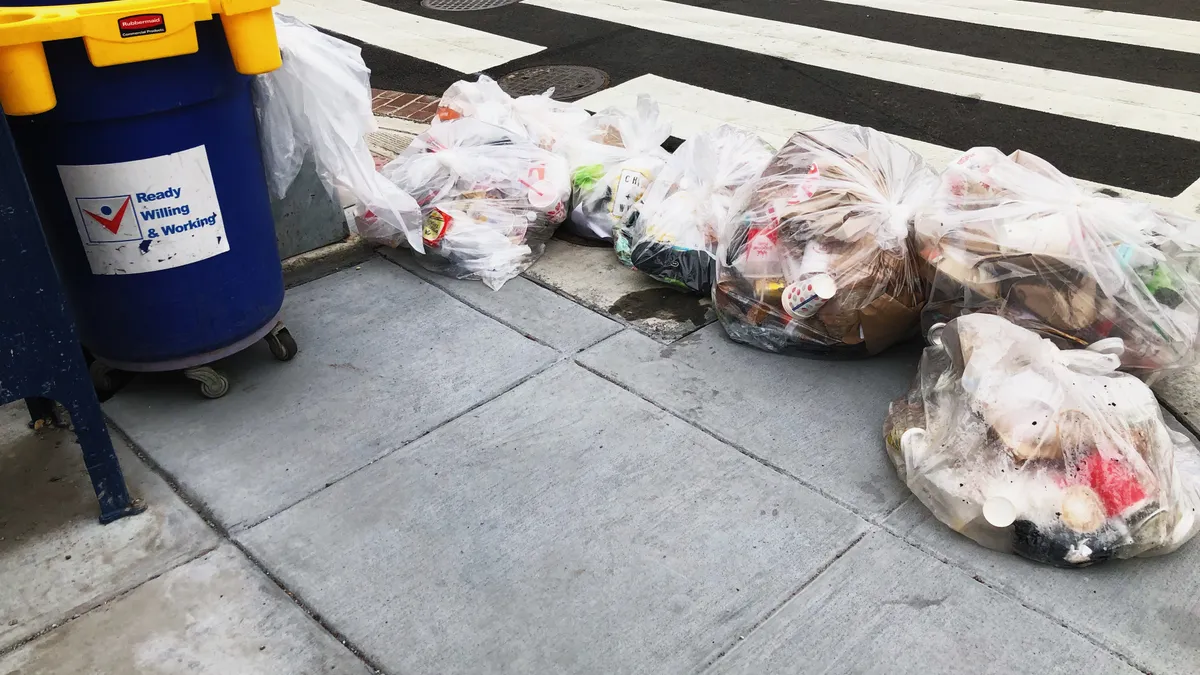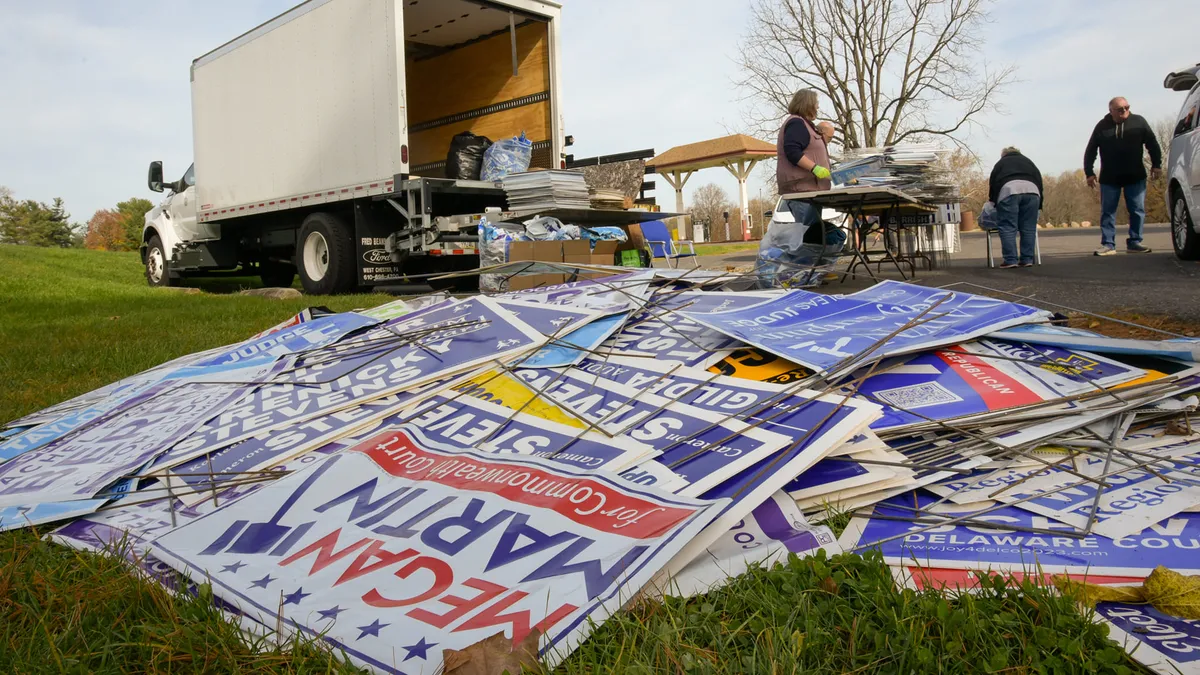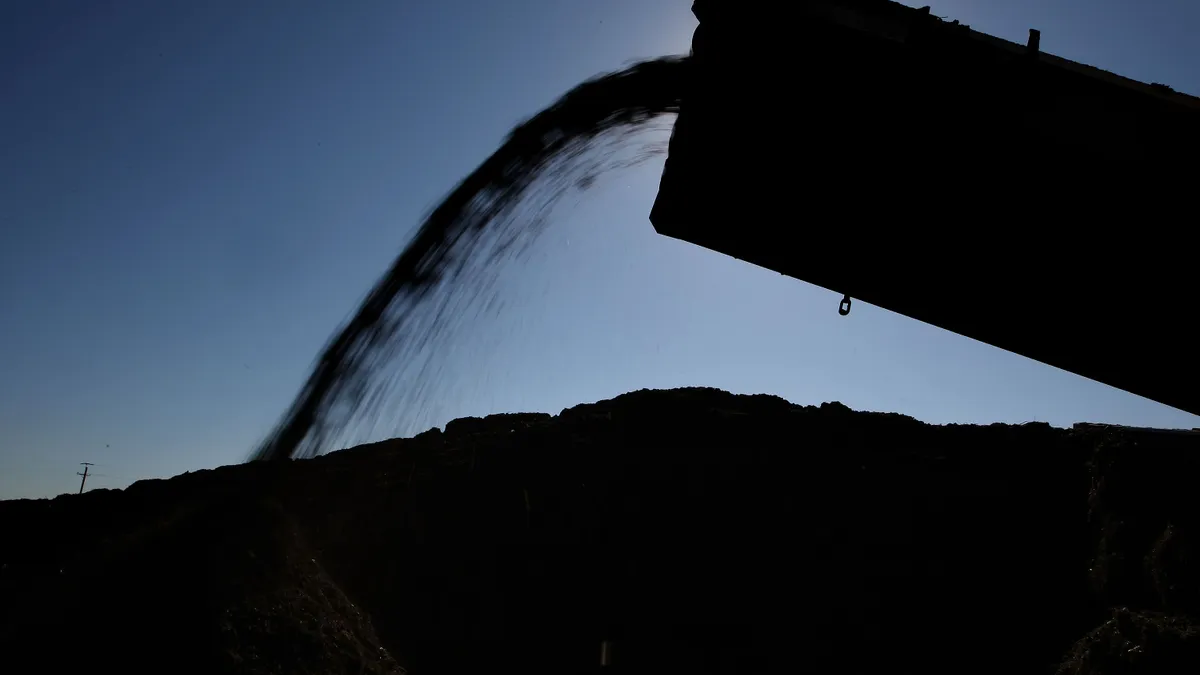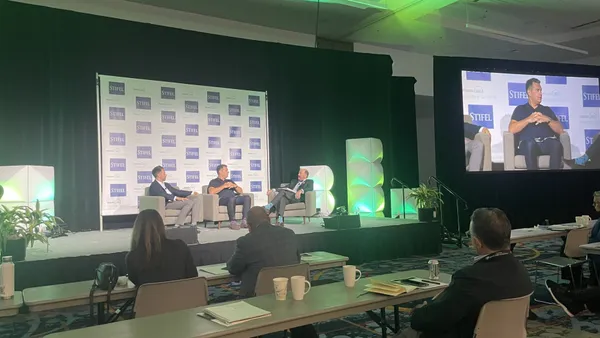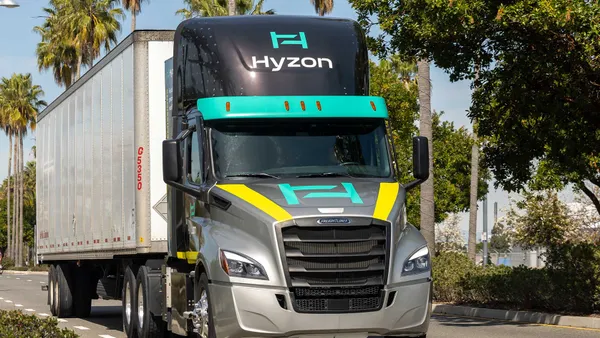UPDATE: June 18, 2020: Sens. John Boozman (R-Ark.), Rob Portman (R-Ohio), and Tom Carper (D-Del.) have introduced a bipartisan bill (S.B. 3984) to include waste and recycling service payments in the CARES Act's Paycheck Protection Program (PPP). The new legislation follows a similar bill introduced in the House of Representatives last month.
The National Waste and Recycling Association (NWRA) applauded the new bill and said in a press release the organization worked with legislative staff on the issue. "The private sector waste and recycling industry is essential to preventing the spread of disease and illness, especially now during the COVID-19 crisis," said CEO Darrell Smith. "We urge Congress to swiftly pass this legislation and send it to the President for his signature."
Dive Brief:
- New bipartisan legislation (H.R. 6987) in the U.S. House of Representatives would increase flexibility within the CARES Act's Paycheck Protection Program (PPP) to make waste and recycling service payments eligible for debt forgiveness. The office of Rep. David McKinley (R-WV), the bill's sponsor, shared a copy with Waste Dive.
- The measure has been pushed by the NWRA following ongoing concerns about "bad debt" issues that can occur if customers are unable to pay for service due to the pandemic. Vice President of Communications Brandon Wright told Waste Dive the legislation is a "big deal" in the organization's push for aid. Multiple major waste companies, including Waste Management, also reported preparing for this potential event in their latest earnings reports.
- The bill comes amid other efforts to include the industry in federal funding associated with coronavirus relief. For example, Waste Management and the Solid Waste Association of North America (SWANA) are among a long list of signatories to a letter calling on Congress to fund $500 billion in direct relief to cities, towns, and villages.
Dive Insight:
The new bill's stated purpose is "to include payments for waste and recycling collection services as covered utility payments for purposes of calculating the eligible amount for forgiveness of indebtedness on a paycheck protection program loan." The legislation was referred to the House Committee on Small Business on May 22 and has support from both Republicans and Democrats.
Since the pandemic began, NWRA and other industry groups have raised concerns about customers being unable to pay for waste and recycling services. In April, NWRA CEO Darrell Smith told Waste Dive that some members were already expressing worries about not being paid, pointing to past issues during major disaster events like Hurricane Katrina in 2005.
"Our industry is very dedicated in the communities in which they work and they’ll continue to do their jobs, but sometimes during this crisis they may not get paid in a timely fashion," Smith said. "They may not get paid at all by certain businesses that do go out of business or go through hardships. So we’re trying to look to the federal government for some sort of mechanism that can compensate our industry if those types of problems become severe."
Wright said the new bill reflects that mentality and deemed it "a win" for the industry. NWRA is calling for the bill's swift passage in the House and for similar legislation to be introduced in the Senate.
NWRA is also among groups pushing the U.S. Federal Emergency Management Agency (FEMA) to cover non-compensated waste and recycling services. In March, the organization called for FEMA to step in and hired the Vogel Group, an outside firm, to assist with lobbying efforts on various issues, including that push.
SWANA is similarly asking FEMA for help, but the association is emphasizing the need to reimburse municipal service providers along with private solid waste entities for unpaid services rendered during the pandemic. The organization sent a letter to the agency last week asking for a system to be established that would allow for both public and private sector compensation.
SWANA CEO David Biderman said funding to private haulers and local governments for the additional costs incurred due to the pandemic is critical, especially given an estimated 15% to 25% increase in residential tonnage between mid-March and mid-May in many areas. Because of this, SWANA would like to see a significantly larger scope for relief aid beyond H.R. 6987, which Biderman described as "no substitute" for larger funding.
"SWANA’s FEMA request is far broader and seeks reimbursement for tens of millions of dollars for additional disposal costs," Biderman said.
Other efforts are also underway to potentially secure more federal funding for the industry. While some waste and recycling organizations have joined with plastics groups to ask Congress to include the infrastructure-focused RECOVER Act in pandemic aid, other players have voiced opposition to that push. Instead, those groups have been supportive of the more education and outreach-focused RECYCLE Act, which they say could be included in aid packages.
Additional reporting by Cole Rosengren


